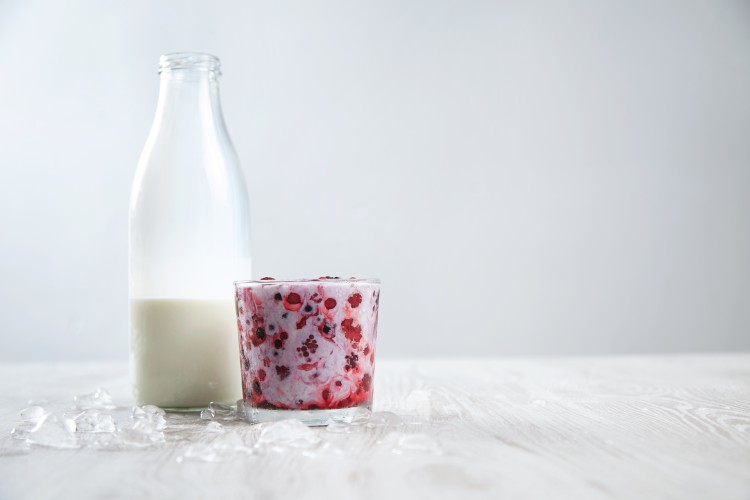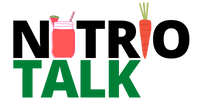Complete Protein in Vegetarian Diets: Myths vs Facts
By NutrioTalk
Why Protein Really Matters
Protein is one of the building blocks of our bodies—it helps with muscle repair, keeps our tissues healthy, supports enzymes, and even boosts our immune system. But there’s a common worry among vegetarians: “Am I getting enough complete protein?” The idea that plant-based diets can't provide complete protein is outdated.
In this article, we’ll break down what complete proteins really mean, bust some myths, look at practical ways to get your protein, and talk about supplements—so you can feel confident about your nutrition no matter what you eat.

What’s the Deal with Complete and Incomplete Proteins?
Proteins are made up of amino acids, and out of the 20 types, 9 are essential—you have to get them from food.
• Complete Proteins have all 9 essential amino acids in the right amounts. Think eggs, dairy, soy, and quinoa.
• Incomplete Proteins might miss one or two essential amino acids. Most plant foods like beans, grains, and nuts fall here.
But here’s the kicker: Your body maintains an amino acid pool, making complete protein vegetarian meals throughout the day easy to achieve. So, you don’t need to get every single amino acid at every meal. This old idea that you must combine certain foods at the same time is mostly outdated.
Common Myths About Protein in Vegetarian Diets
1.Myth: Plant Proteins Are Incomplete And Not As Good
Reality: While some plants might lack a few amino acids, eating a variety of plant-based protein sources throughout the day helps ensure you get all essential amino acids.
2.Myth: Eat Specific Food Combos At The Same Meal
Reality: Your body pools amino acids, so mixing proteins throughout the day works just fine.
3.Myth: Vegetarians Can’t Build Muscle
Reality: Many top athletes thrive on plant-based diets with thoughtful planning.
4.Myth: Supplements Are The Only Way To Get Enough Protein
Reality: Whole foods generally do the job well; supplements are helpful but usually not necessary.
Protein-Rich Vegetarian Foods You’ll Love
• Legumes: Lentils (about 18g of protein per cooked cup), chickpeas, black beans
• Soy Products: Soy products like tofu, tempeh, and edamame are examples of vegetarian complete proteins with high PDCAAS scores
• Whole Grains: Quinoa (8g per cup), brown rice, amaranth
• Nuts & Seeds: Pumpkin seeds, almonds, hemp seeds (which pack around 10g of protein in 3 tablespoons)
• Dairy & Eggs: If you include these, Greek yogurt, paneer, and eggs are excellent sources
• Veggies: Peas, broccoli, and spinach surprise with decent protein per calorie
Plants That Are Naturally Complete Proteins
• Soy is the superstar here, providing all essential amino acids.
• Quinoa is another naturally complete plant protein that’s also gluten-free and easy to cook.
• Amaranth and buckwheat also make the list.
• Hemp and chia seeds are great for protein plus healthy fats.
How Do We Know Protein Quality?
Two big measures help us figure this out:
1. PDCAAS (Protein Digestibility Corrected Amino Acid Score):Soy scores a perfect 1.0—same as eggs and meat!
2. DIAAS (Digestible Indispensable Amino Acid Score): A newer method, focusing on how well your body absorbs amino acids.
Should You Use Protein Supplements?
Vegetarian protein supplements can help if you:
• Are very active or an athlete
• Have trouble eating enough whole foods
• Are older and want to prevent muscle loss
• Follow very restricted diets
Popular plant-based options include:
• Pea protein (great amino acid profile)
• Soy protein isolate (complete and well-researched)
• Rice protein (usually combined with other sources)
• Hemp and pumpkin seed proteins
• Blended powders that mix several sources for balance and taste
Pro tip: Pick clean, tested products and don’t over-rely on supplements—whole foods come first.
A Bit of History and Global Insight
Back in the 1970s, nutrition advice pushed combining proteins at each meal. Today, we know it’s about variety over time. Countries like India and Israel are leading the way in plant-based nutrition research and fortified foods, helping millions meet their protein needs better.
Real-Life Example
Take Sarah, a 29-year-old vegetarian runner who felt low on energy despite eating well. After adding more tofu, quinoa, and hemp seeds—and starting her day with a pea protein smoothie—her energy and performance improved a lot within two months.
What You Should Remember
• You absolutely can get all your essential amino acids without meat.
• Plant proteins can be complete naturally or through simple combinations.
• Supplements are useful but not mandatory for most.
• Knowing your protein sources and quality makes a big difference.
Wrapping It Up
The myth that vegetarians can’t get complete protein just doesn’t hold up anymore. With a bit of planning, the right information, and smart use of vegetarian protein sources, you can easily meet your needs. You can meet your protein needs and feel great—whether you’re a casual eater or training for a marathon.

